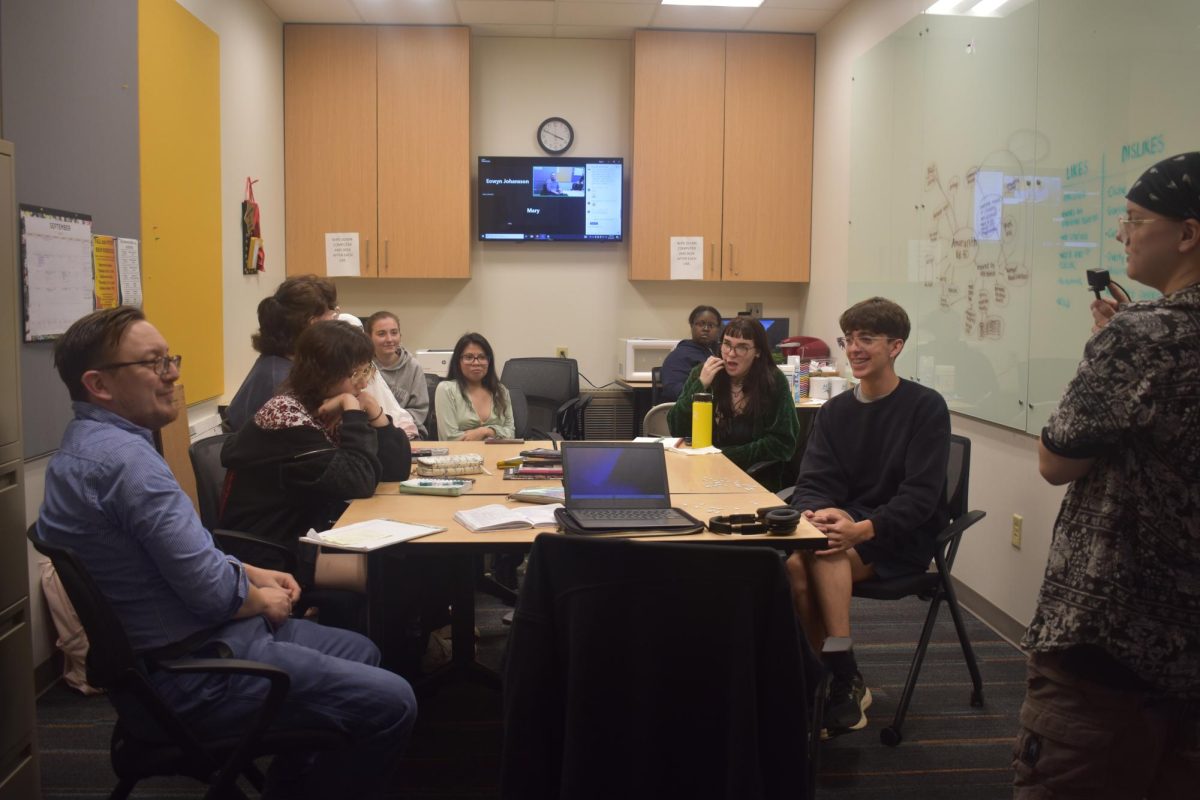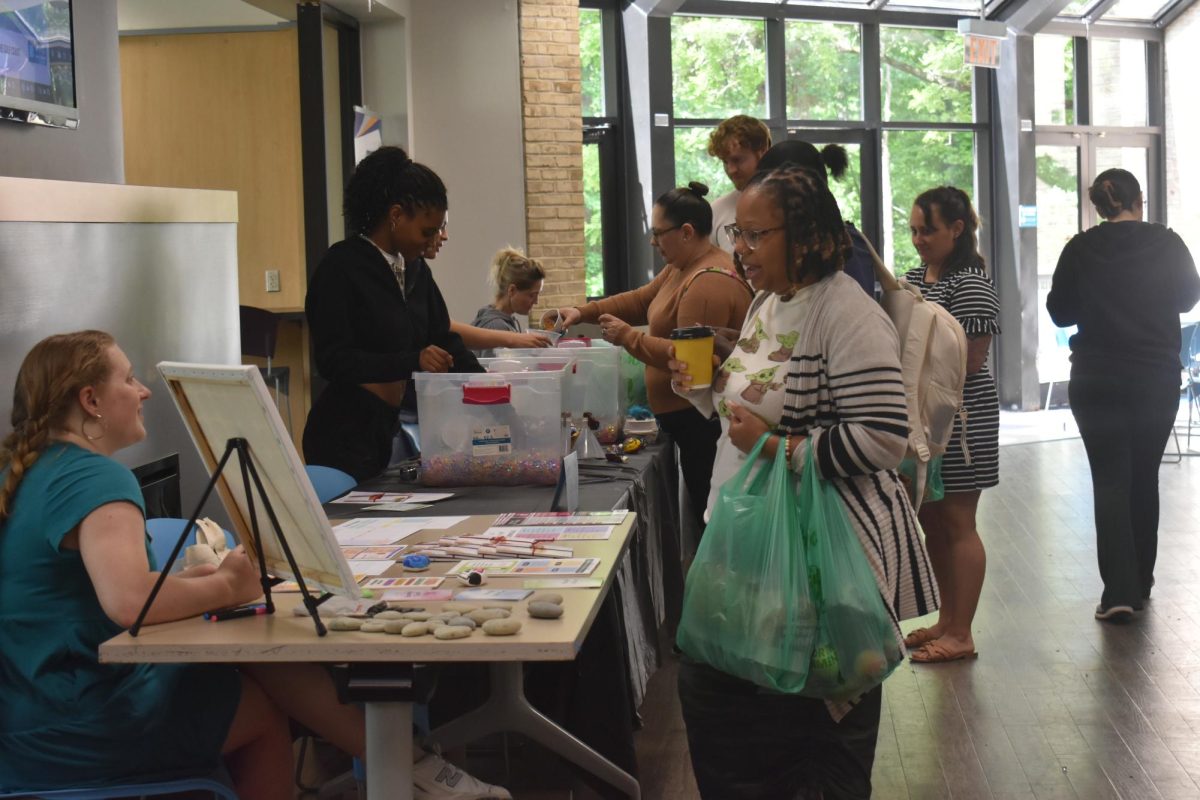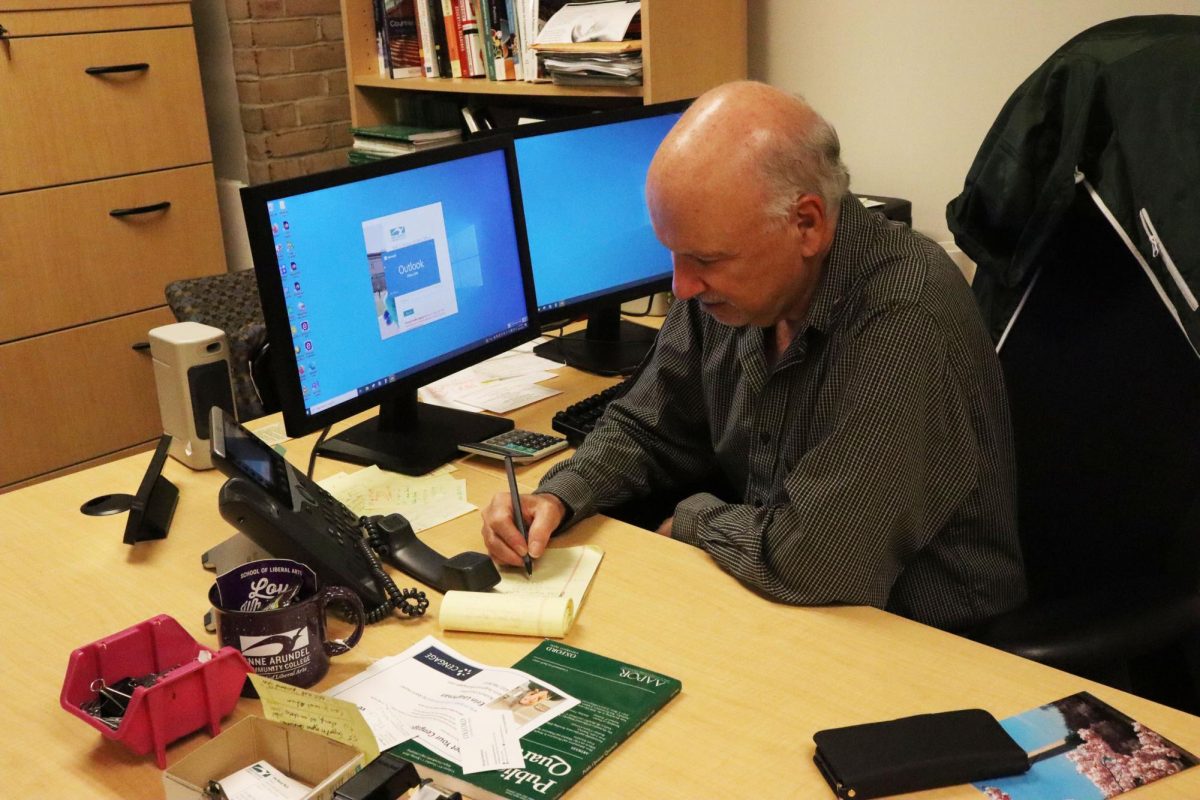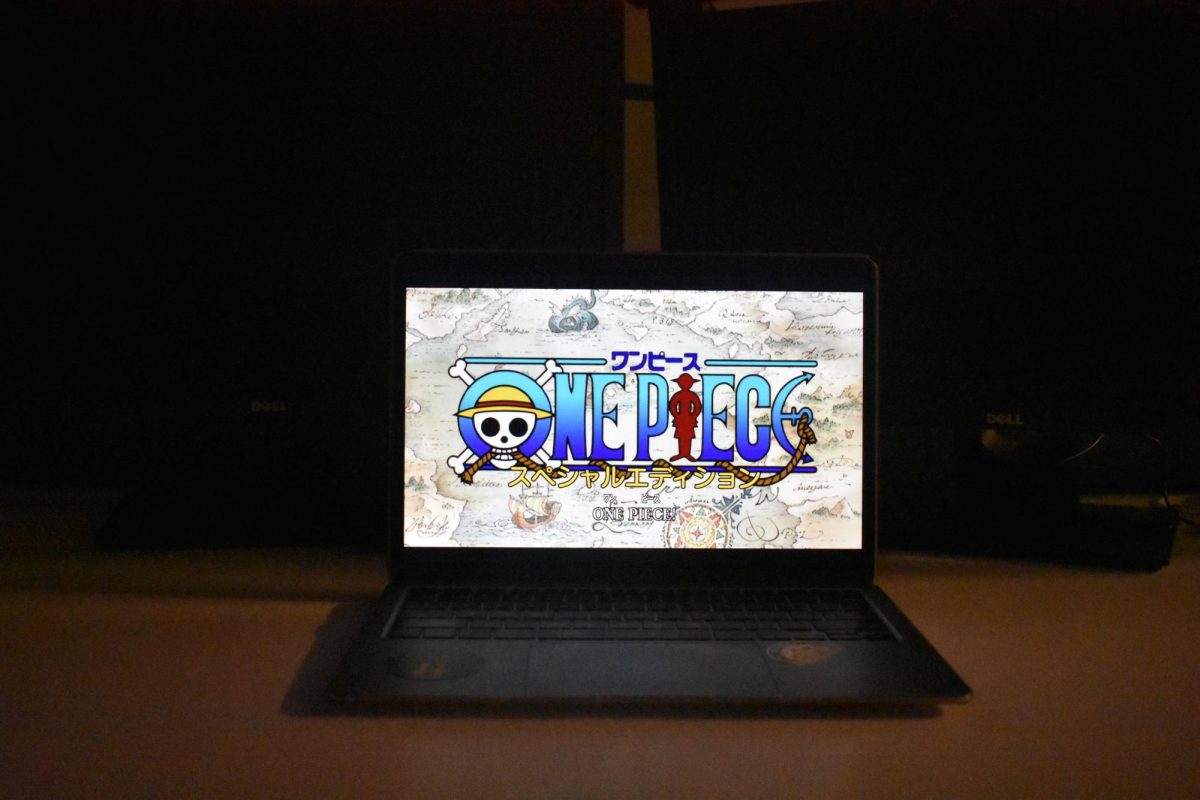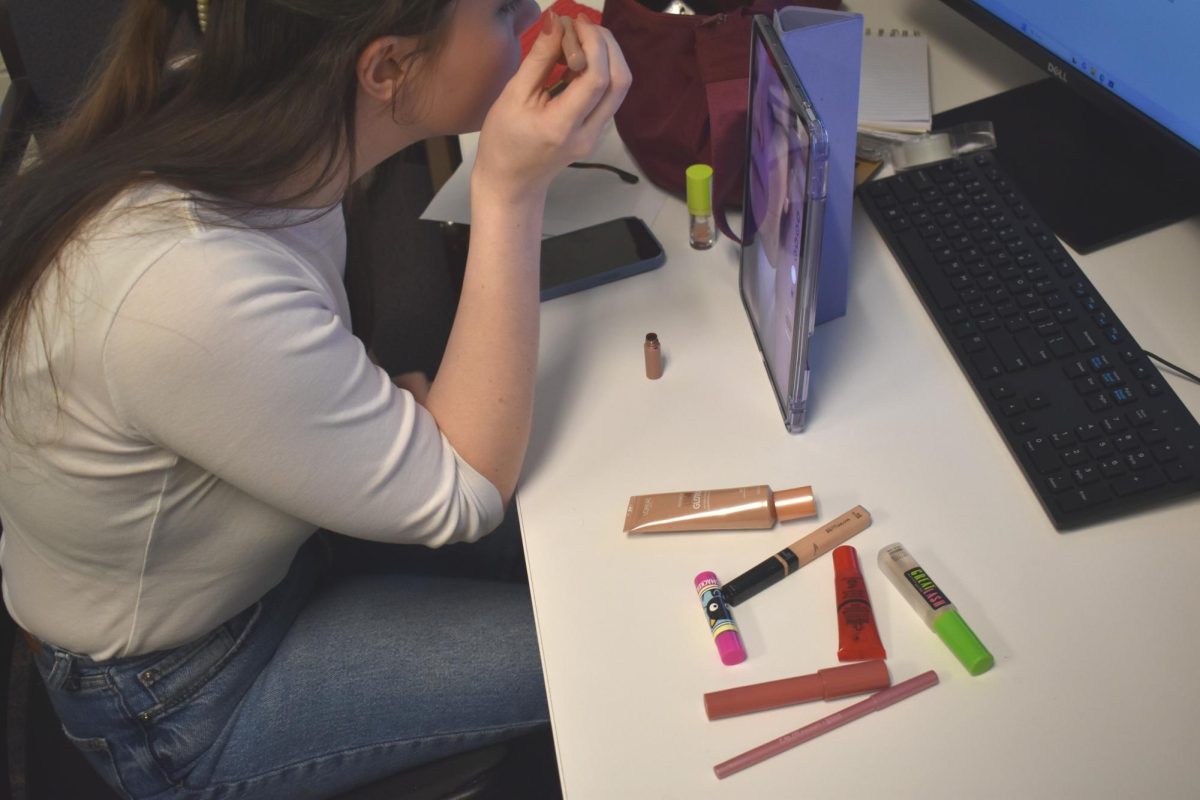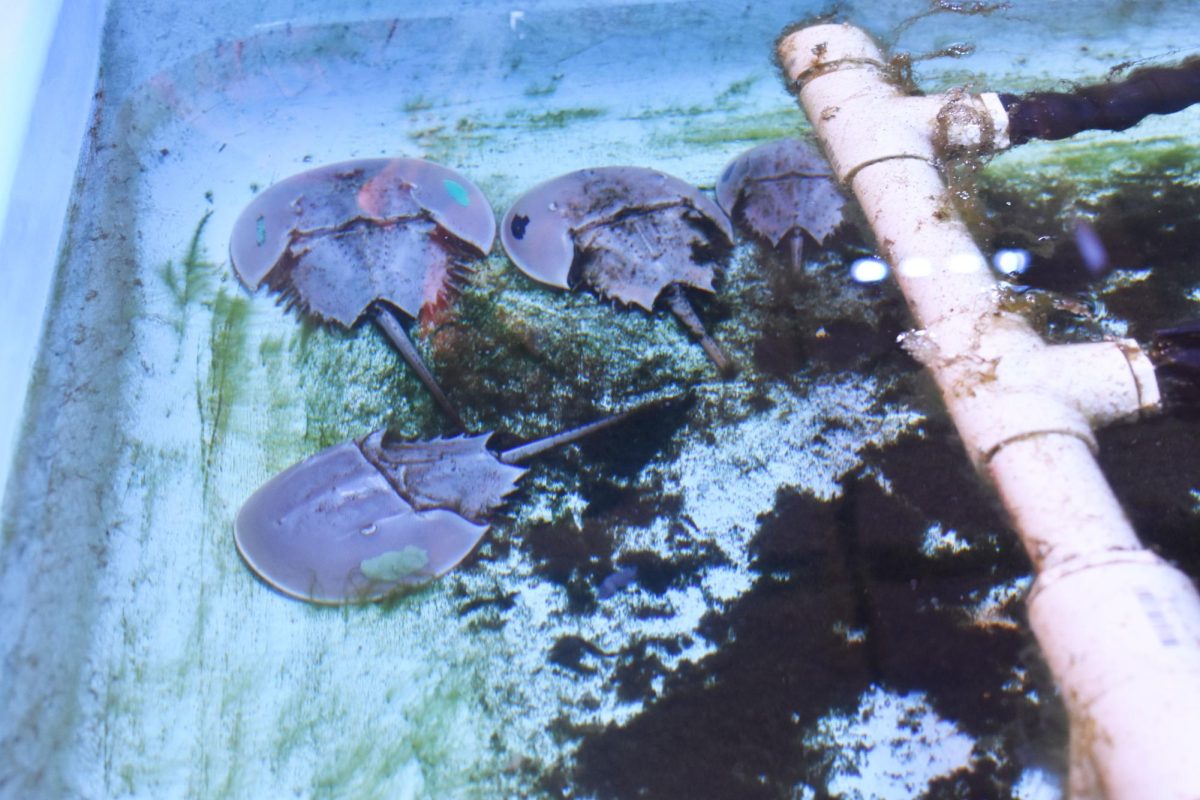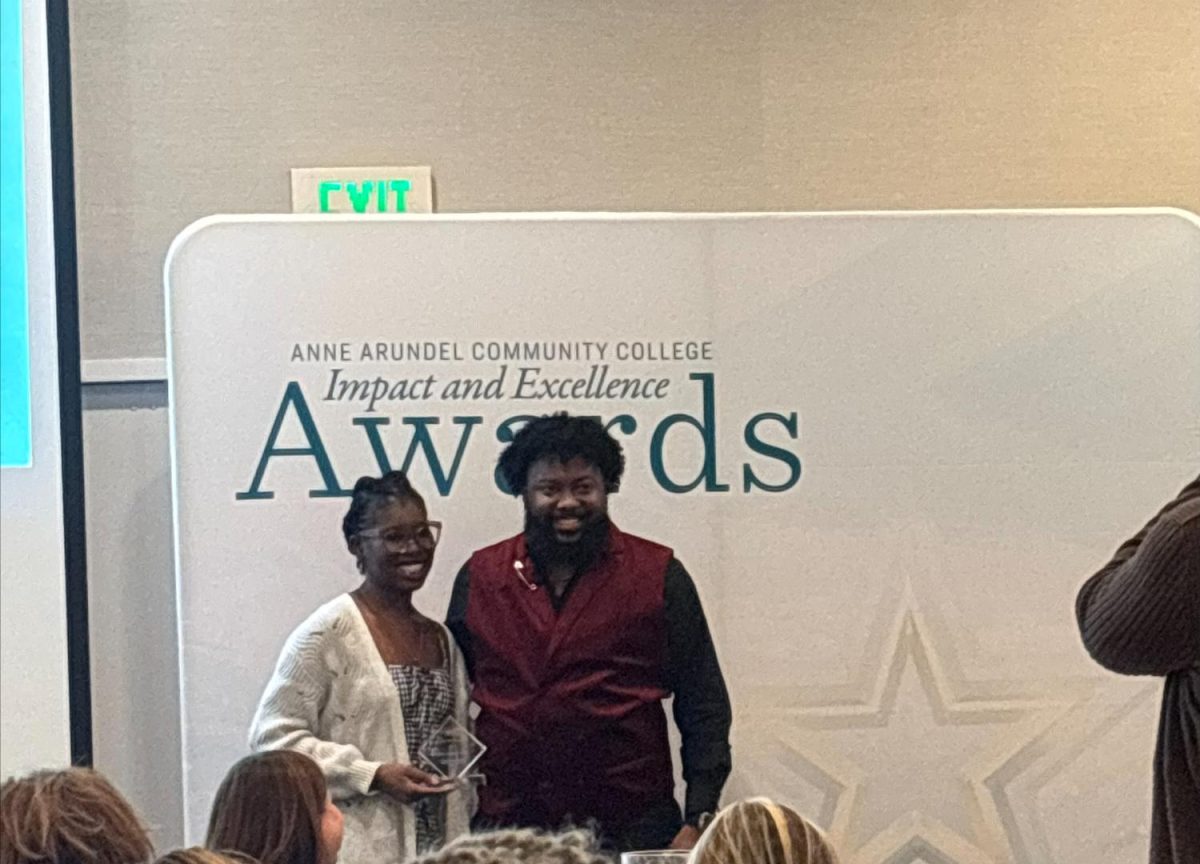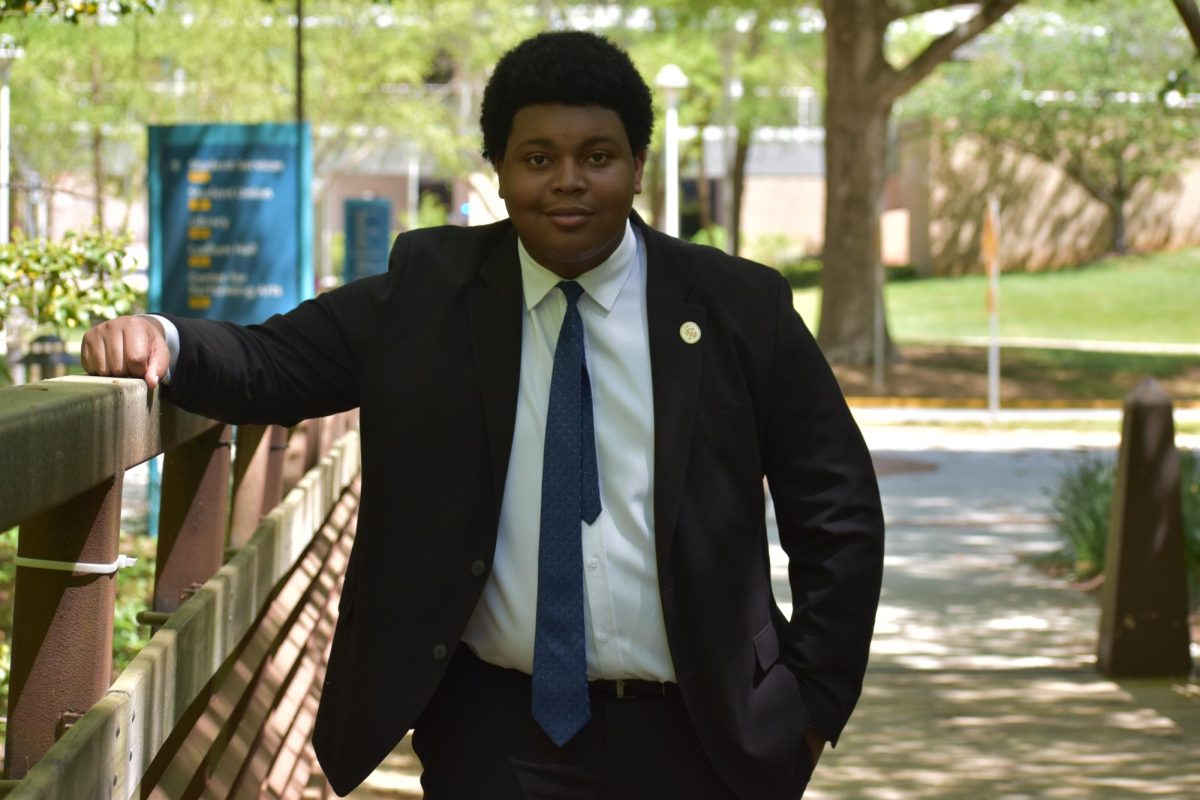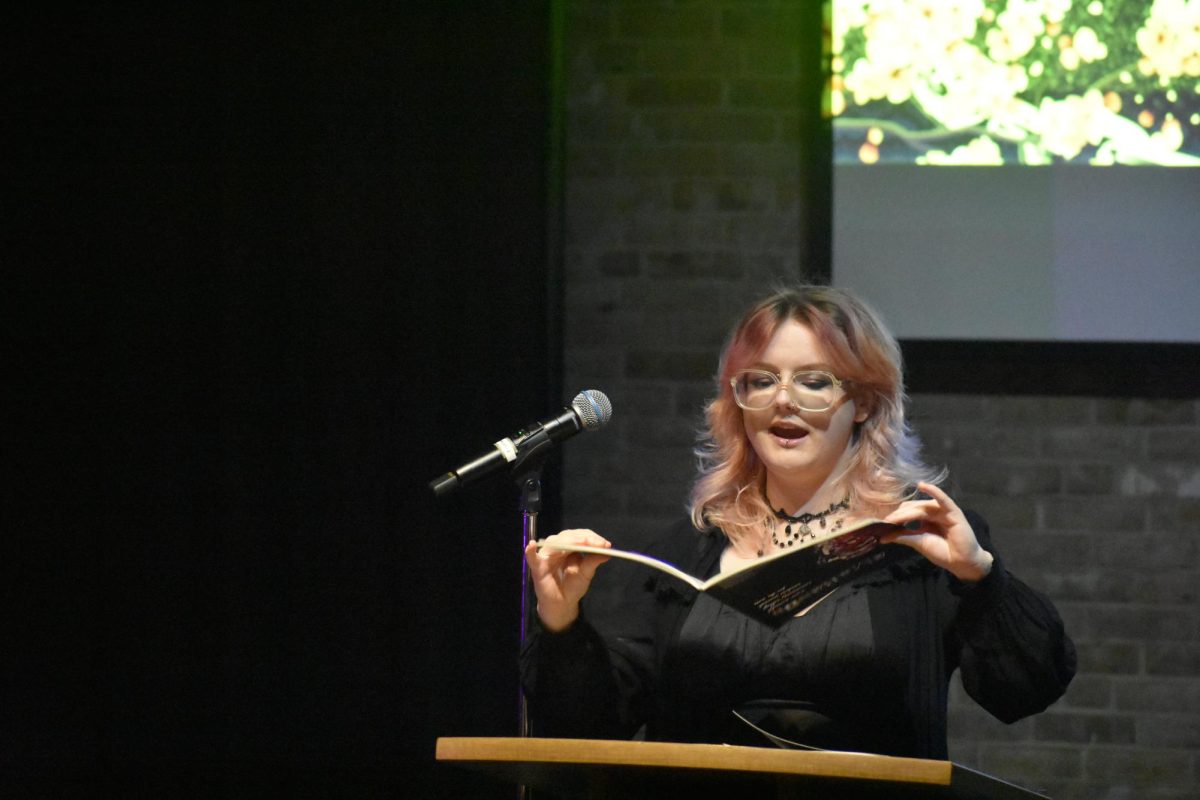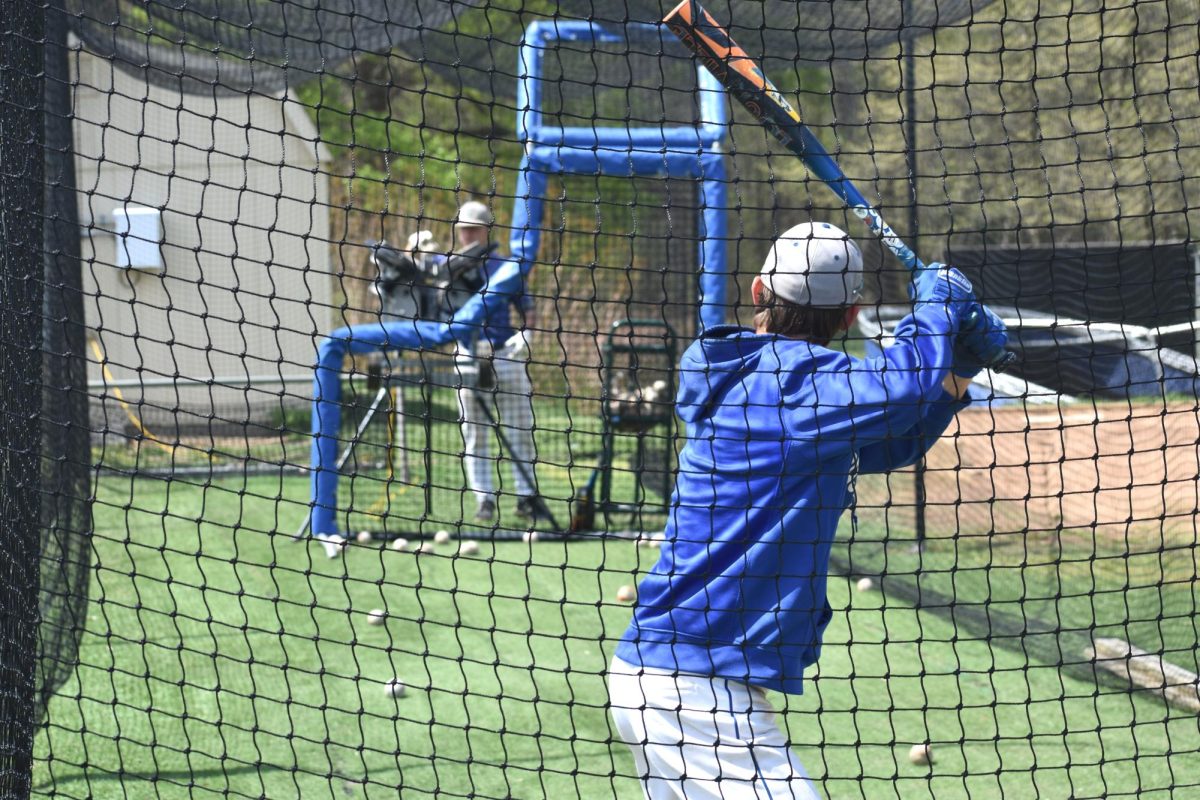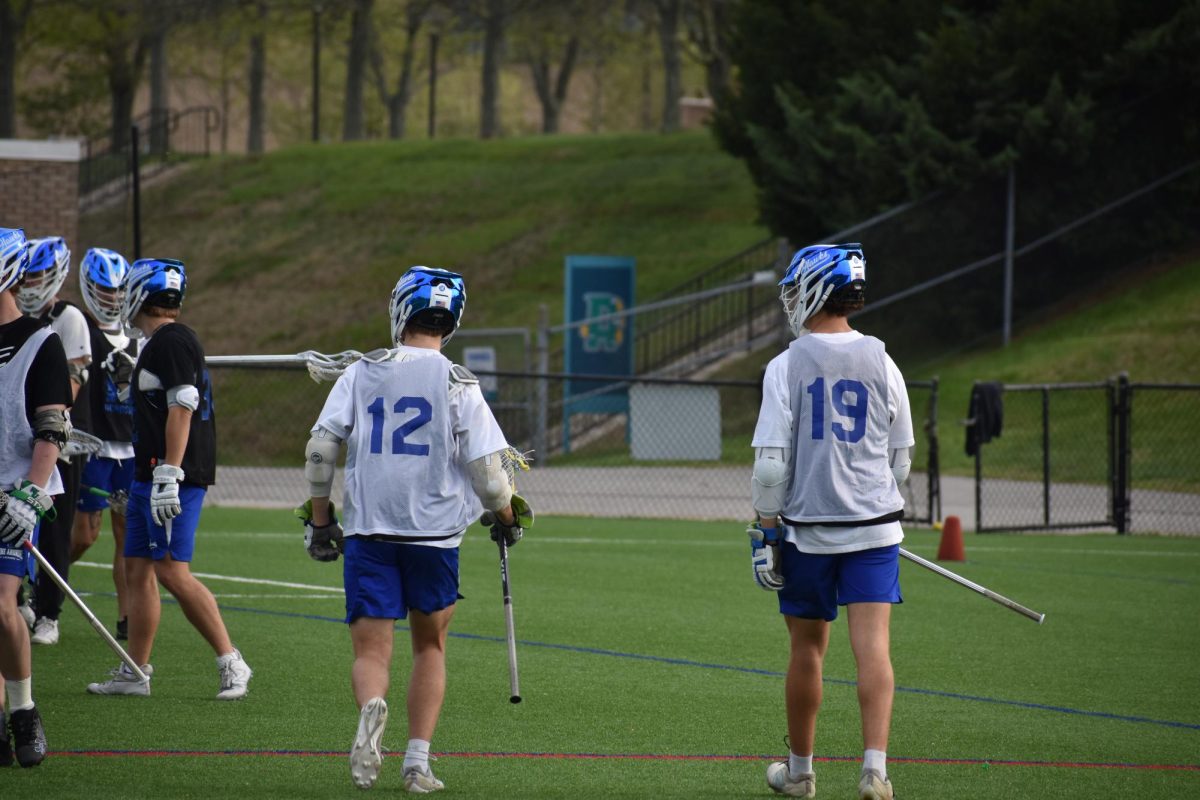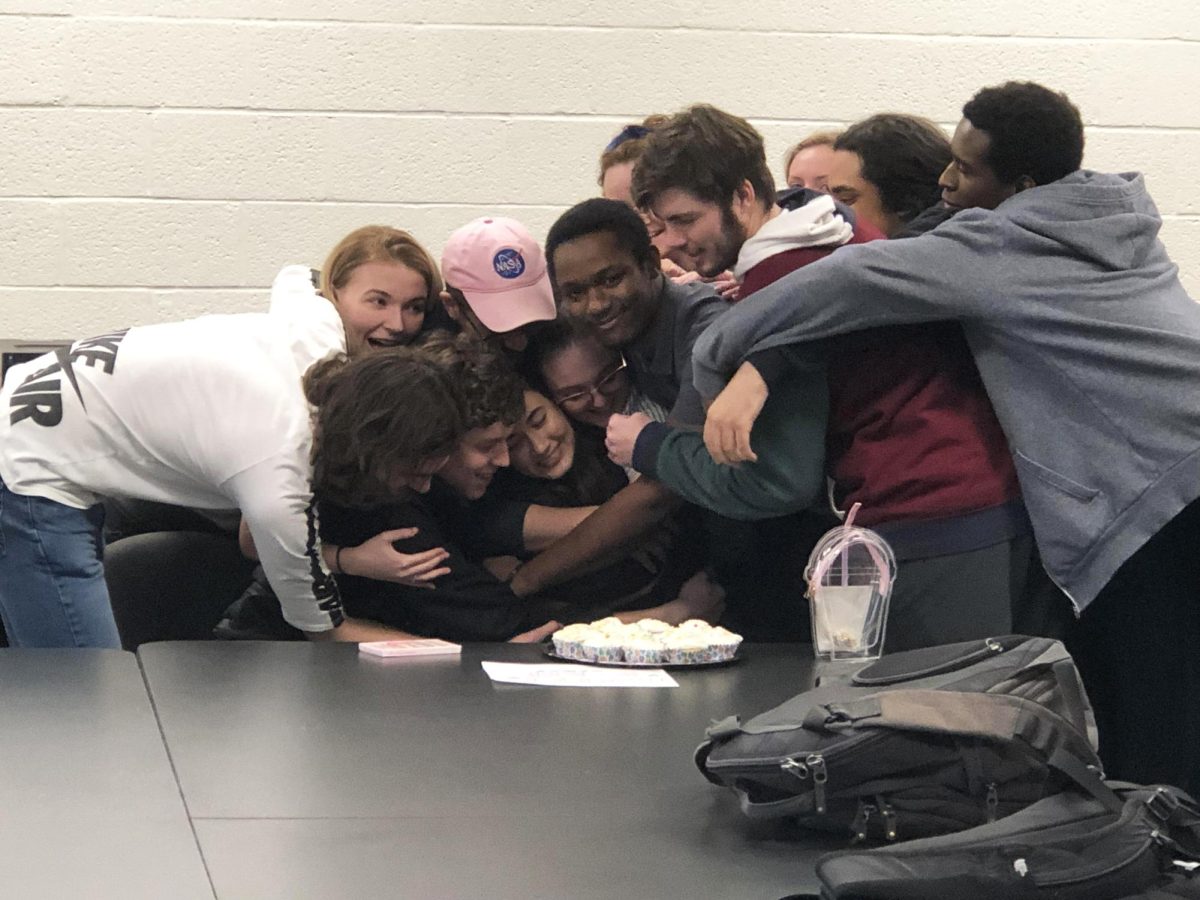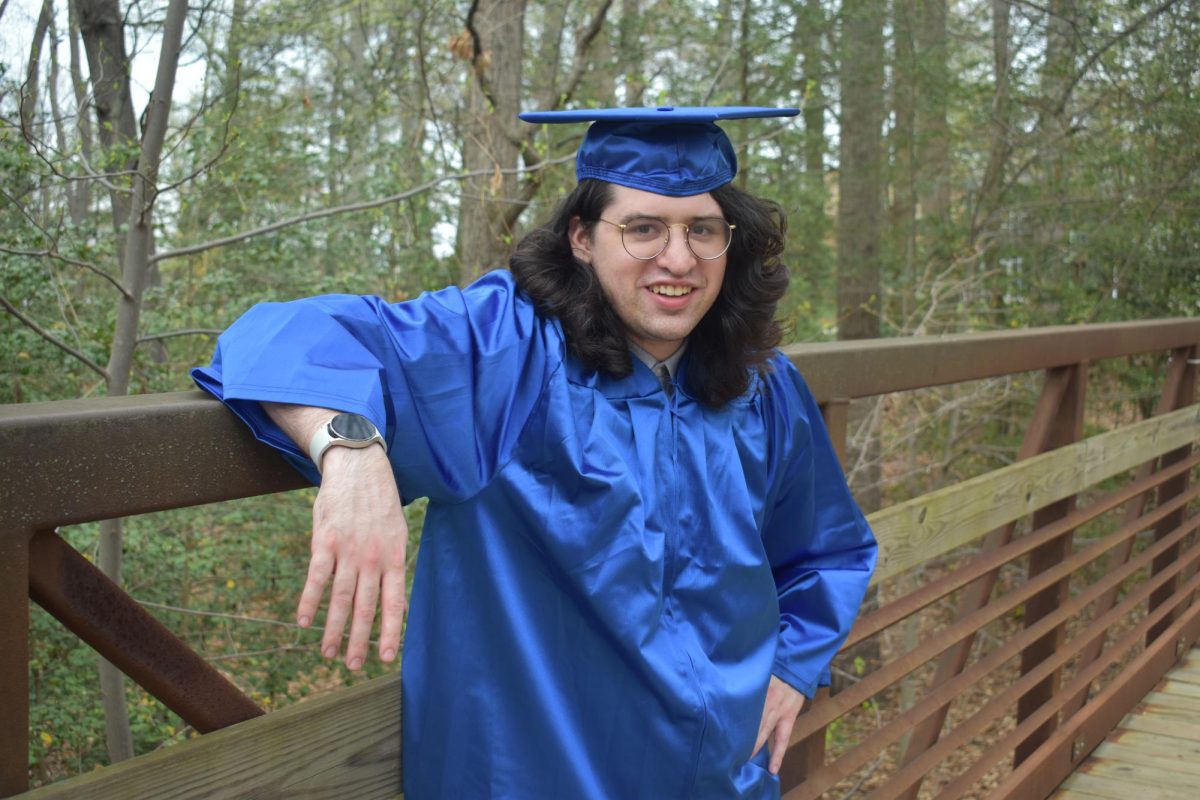The editors of AACC’s student literary journal said on Sept. 10 they are concerned writers might try to pass off AI-generated stories and artwork as original.
Zoe Sharp, the editor-in-chief of the journal Amaranth, said it’s possible the staff will have to ask the artists who submit the work for publication if they created it without the help of AI.
“I feel like, as Amaranth, we really want to see what students have made themselves,” Sharp said. “And although there is an argument to be made that AI art generated through prompts that someone created is their work, I think that’s a stance that we disagree with.”
Sharp and the other student editors are working on the 50th anniversary edition of Amaranth, which they will publish in the spring.
At the club’s weekly staff meeting, Associate Editor Tomi Brunton said writers might include some AI-generated text in their pieces as well.
“We probably should have that vaguely on our radar,” Brunton said.
“If we need to have discussions about whether or not a piece is AI generated, we will,” Sharp said.
Sharp, who explained that the pieces published in Amaranth are selected by a jury, said the editors are looking for “things that are bringing new … ideas, new concepts, new … styles to the table, especially if it’s something we’ve never seen in Amaranth before.”
What the editors do not want to see in submissions, Sharp said, are cliches, glaring errors like misspellings and misuse of vocabulary.
“If something is really reliant on cliche, it’s not fun to read or it’s not fun to look at, you know,” Sharp said.
Amaranth will host a monthly coffee house on Thursday, Sept. 26, from 6 p.m. to 8 p.m., in the cafeteria, where students can read their short stories and poems to an audience.



